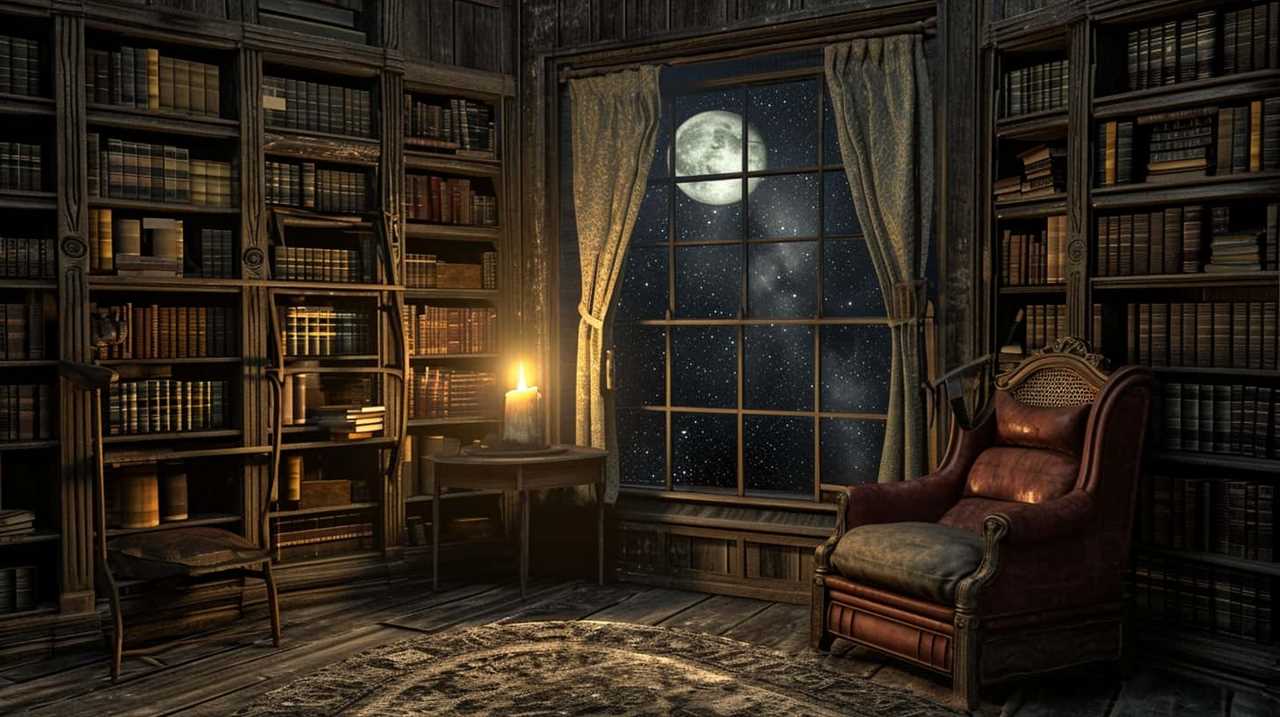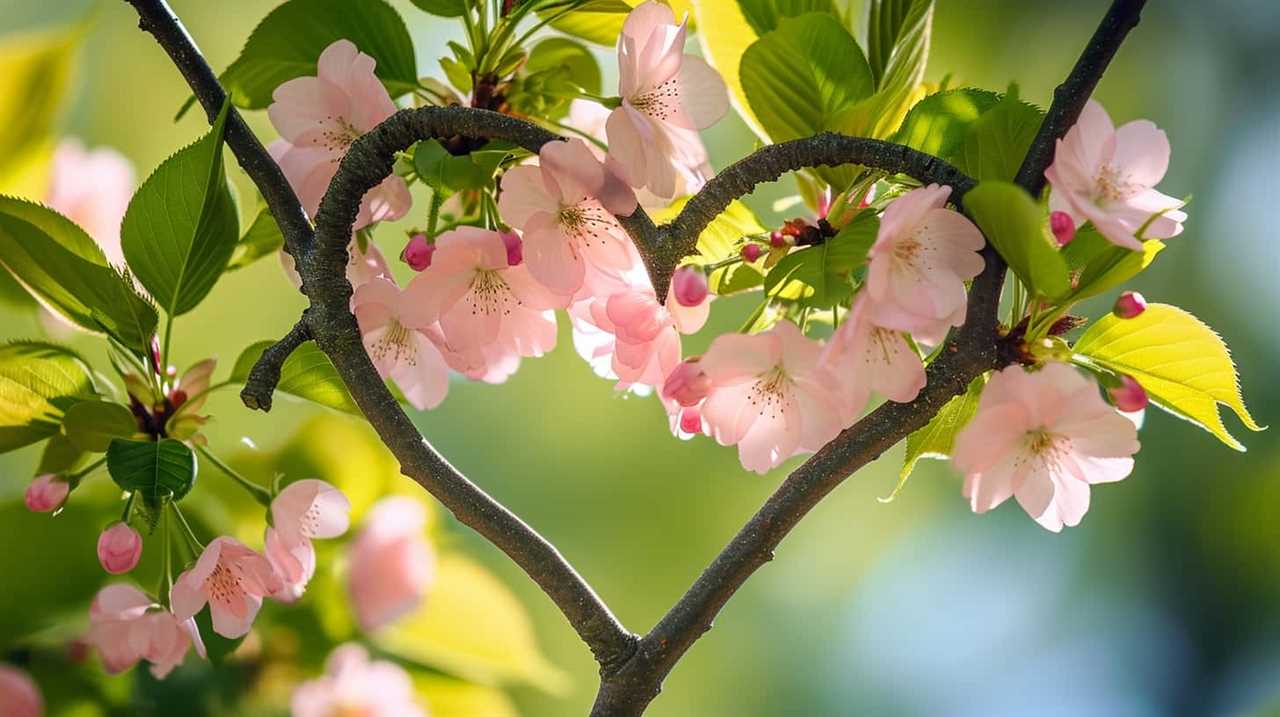Are you seeking intriguing knowledge that will ignite your thoughts and stretch your creativity to new heights? Search no more. Explore now!
In the realm of theater, the most poignant play quotes possess the power to captivate and provoke contemplation. These words, carefully crafted by master playwrights, are like keys that unlock hidden chambers of thought within you.
From the tragic musings of Shakespeare’s Romeo and Juliet to the existential ponderings of Hamlet, each quote holds a mirror to the human condition. As you delve into these snippets of wisdom, you will embark on a journey of self-discovery and intellectual stimulation.
Get ready to delve into the depths of these profound play quotes and let them shape your perspective on life itself.

Key Takeaways
- Shakespeare’s plays offer profound quotes for reflection, such as ‘O Happy Dagger’ from Romeo and Juliet and ‘To Be or Not to Be’ from Hamlet.
- Jealousy is a recurring theme in Shakespeare’s plays, showcasing its destructive power and the tragic consequences it can have.
- Other plays explore various themes, such as the fading American Dream in Death of a Salesman and the impact of deferred dreams in A Raisin in the Sun.
- King Lear’s descent into madness and grief is a central focus, highlighting the unraveling of emotions on stage and the weight of grief in the play.
Romeo and Juliet: "O Happy Dagger
In Romeo and Juliet’s tragic tale, one of the most poignant quotes for reflection is the famous line, ‘O Happy Dagger.’
This line, spoken by Juliet as she contemplates taking her own life, holds deep symbolism and captures the essence of the tragedy that unfolds in the play.
The dagger, in this context, symbolizes both life and death. It represents the ultimate act of love and sacrifice that Juliet is willing to undertake for her beloved Romeo. By taking her own life, she believes she can be with him in death, breaking free from the constraints of their feuding families and the tragic circumstances that have torn them apart.
This quote forces us to confront the devastating consequences of unchecked passion and the power of love to both unite and destroy. It highlights the tragic nature of Romeo and Juliet’s story, where their love is ultimately doomed by the forces of fate and societal expectations.

The use of the word ‘happy’ in the quote adds a layer of complexity to the symbolism. It suggests that for Juliet, death isn’t a morbid or tragic end, but rather a release from the pain and suffering she’s endured. It challenges our conventional notions of happiness and begs the question of whether true happiness can ever be found in such a tragic tale.
Hamlet: "To Be or Not to Be
Continuing from the previous subtopic, a poignant quote for reflection in Shakespeare’s plays is found in Hamlet: ‘To be or not to be.’ These six words carry a profound symbolism of life and its complexities, leaving a lasting impact on the audience.
‘To be or not to be’ is a powerful soliloquy uttered by Hamlet himself, a character who contemplates the meaning of existence and the struggles we face in our mortal lives. This quote encapsulates the existential crisis that many individuals experience, as they grapple with the choices and uncertainties that define their existence.
The impact of this quote on the audience is profound, as it forces them to confront their own mortality and question the purpose of their own lives. It challenges conventional wisdom and encourages people to think deeply about the choices they make and the impact they’ve on the world around them.

The symbolism of life in ‘To be or not to be’ resonates with the audience, urging them to reflect on the fragility and preciousness of life. It serves as a reminder that life isn’t merely a series of events, but a journey to be embraced and appreciated.
Through its thought-provoking nature, this quote sparks innovation in the minds of the audience, inspiring them to seek meaning and purpose in their own lives.
Macbeth: "Out, Out, Brief Candle
Imagine a flickering candle, its flame dancing in the darkness, casting shadows that seem to whisper of the transience of life. This is the essence of Macbeth’s haunting soliloquy: ‘Out, out, brief candle.’
In these three simple words, Shakespeare captures the fragility and brevity of our existence, reminding us that our time on this earth is limited.

As we reflect upon these profound lines, we’re compelled to confront our own mortality and ponder the legacy we’ll leave behind.
Shakespeare’s ability to evoke such visceral emotions in his audience is a testament to his timeless relevance as a playwright.
Shakespeare’s Timeless Relevance
How does Macbeth’s quote ‘Out, out, brief candle’ exemplify Shakespeare’s timeless relevance?
Shakespeare’s influence continues to resonate through the centuries, as his works tackle timeless themes that remain relevant to this day. Macbeth’s quote, ‘Out, out, brief candle,’ captures the fleeting nature of life and the human condition, reminding us of the transience of our existence. It serves as a powerful reminder to seize the present moment and make the most of our limited time on Earth.

- Life’s ephemeral nature: The quote reflects the brevity of life, urging us to appreciate every fleeting moment.
- Human mortality: It reminds us of our mortality, prompting introspection on the meaning and purpose of our lives.
- Impermanence of power: Macbeth’s words highlight the temporary nature of power and the consequences of one’s actions.
- Existential ponderings: It invites us to contemplate the existential questions that have puzzled humanity for centuries.
- Universal relevance: The quote’s timeless relevance lies in its ability to provoke thought and contemplation across cultures and generations.
Shakespeare’s enduring legacy lies in his ability to capture the human experience, and Macbeth’s quote serves as a poignant reminder of our own mortality and the need to make the most of our time.
Symbolism of Fleeting Life
Macbeth’s quote ‘Out, out, brief candle’ illuminates the symbolism of impermanence, highlighting the fleeting nature of life and prompting contemplation of our mortality. In these four simple words, Shakespeare captures the essence of our existence, reminding us of the fragility and transience of life itself.
The candle, a symbol of light and life, burns for only a short while before it’s extinguished. Similarly, our lives flicker and fade, leaving behind only memories and traces of our existence. This profound realization forces us to confront the limited time we’ve on this earth and encourages us to make the most of every moment.
Macbeth’s words serve as a powerful reminder that life is a precious gift, one that shouldn’t be taken for granted. It urges us to reflect on our own lives, to question the legacy we’ll leave behind, and to seize every opportunity to create meaning and purpose.

Impact on Audience’s Emotions
The quote ‘Out, out, brief candle’ from Macbeth elicits a powerful emotional response from the audience. This line, spoken by Macbeth after the death of Lady Macbeth, encapsulates the brevity and fragility of life, leaving the audience with a profound sense of melancholy. Here are five reasons why this quote has such a profound impact on the audience’s emotions:
- Character development: Macbeth’s realization of the fleeting nature of life reflects his own transformation from a ruthless and ambitious character to one plagued by guilt and remorse.
- Catharsis in theater: The quote allows the audience to experience a cathartic release of emotions, as they confront the universal theme of mortality and reflect on their own lives.
- Poetic language: Shakespeare’s use of vivid imagery and metaphors creates an emotional resonance that lingers with the audience long after the play ends.
- Existential reflection: The quote prompts the audience to contemplate the meaning of life and the inevitability of death, stirring thoughts of mortality and the impermanence of human existence.
- Provokes empathy: Macbeth’s vulnerability and despair in this moment resonate with the audience, evoking empathy and a deep emotional connection.
As the audience grapples with the weight of Macbeth’s words, the transition into the subsequent section about Othello’s warning about jealousy becomes seamless, as both plays explore the complex and destructive nature of human emotions.
Othello: "O, Beware, My Lord, of Jealousy
Beware, for jealousy possesses a power that can unravel even the strongest of bonds.
In Shakespeare’s Othello, we witness the destructive force that jealousy wields, leaving a trail of tragedy and despair in its wake.

It serves as a cautionary tale, reminding us of the consequences that arise when we allow envy to consume our hearts and cloud our judgment.
Jealousy’s Destructive Power
You should be cautious of the destructive power of jealousy, as Othello warns, ‘O, Beware, my Lord, of jealousy.’ Jealousy has the ability to wreak havoc on our lives, causing devastating consequences and emotional turmoil. It’s a force that can consume our thoughts, cloud our judgment, and drive us to commit acts of betrayal and violence.
Here are some reasons why jealousy can be so destructive:
- It distorts our perception: Jealousy warps our view of reality, making us see threats where there are none and fueling irrational suspicions.
- It breeds insecurity: Jealousy feeds on our insecurities, making us doubt ourselves and our worth, leading to a constant state of anxiety and unhappiness.
- It destroys trust: Jealousy erodes the foundation of trust in relationships, creating a toxic environment where suspicion and doubt prevail.
- It fuels resentment: Jealousy fuels resentment towards others, causing us to harbor negative feelings and act in ways that harm ourselves and those around us.
- It hinders personal growth: Jealousy prevents us from focusing on our own growth and achievements, as we become consumed with envy and comparison.
In order to protect ourselves from the destructive power of jealousy, we must cultivate self-awareness, trust, and gratitude, and strive to celebrate the success and happiness of others.

The Tragic Consequences
To fully grasp the tragic consequences of jealousy, one must heed Othello’s cautionary words: be mindful of the destructive power it possesses.
Jealousy, like a venomous snake, slithers its way into the hearts of individuals, poisoning their thoughts and emotions. Its impact on emotions can be devastating, leading to a spiraling descent into madness and despair.
The tragic consequences of jealousy are far-reaching, leaving a trail of broken relationships, shattered trust, and irreversible damage. It consumes the mind, clouding judgment and distorting reality.
In Othello’s case, his jealousy led to the ultimate tragedy, the loss of innocent lives and his own downfall. This cautionary tale serves as a stark reminder of the destructive power of jealousy and the devastating consequences it can bring.

It urges us to reflect on our own emotions and relationships, reminding us to tread carefully, lest we too fall victim to its tragic grip.
Death of a Salesman: "Attention Must Be Paid
Every reader of Death of a Salesman can agree that ‘Attention must be paid’ is one of the most poignant play quotes for reflection. This powerful statement, uttered by Linda Loman, encapsulates the central theme of the play and serves as a call to action for the audience.
As you delve into the symbolism in Death of a Salesman, you’ll discover the fading American dream, a dream that once promised success and happiness but now seems unattainable. Willy Loman’s neglect of his family and his own well-being has dire consequences, which are explored throughout the play. Here are five key points to consider:
- The American Dream: Explore the significance of the American Dream and its decline in the play.
- Willy Loman’s Struggle: Analyze the consequences of Willy’s neglect and the toll it takes on his mental health.
- Linda’s Desperation: Examine Linda’s plea for attention and the emotional impact it has on the audience.
- The Role of Society: Reflect on how society’s expectations and pressures contribute to Willy’s downfall.
- The Power of Attention: Consider the importance of paying attention to one another’s struggles and the impact it can have on relationships and mental well-being.
In exploring these themes, Death of a Salesman forces us to confront the harsh realities of the American Dream and reminds us that attention, both to ourselves and to others, is essential for a meaningful and fulfilling life.

A Streetcar Named Desire: "I Have Always Depended on the Kindness of Strangers
You may have heard the famous line, ‘I have always depended on the kindness of strangers,’ from Tennessee Williams’ play, A Streetcar Named Desire. This quote captures the essence of relying on unfamiliar people for support and survival.
It raises questions about trust, vulnerability, and the human need for connection. Williams reminds us that sometimes, in our most desperate moments, it’s the kindness of strangers that can restore our faith in humanity.
Reliance on Strangers
Sometimes, it can be scary to rely on strangers, but as Blanche DuBois famously said in A Streetcar Named Desire, ‘I’ve always depended on the kindness of strangers.’ This quote resonates because it highlights the delicate balance of trust and vulnerability in relationships.
When we find ourselves in unfamiliar territory, it’s natural to feel apprehensive about opening up to strangers. However, there are moments when we must embrace the unknown and lean on the compassion of others. Here are five reasons why relying on strangers can be a transformative experience:

- Strangers offer fresh perspectives and unbiased advice.
- They can provide unexpected acts of kindness that restore our faith in humanity.
- Strangers challenge us to step out of our comfort zones and embrace new opportunities.
- They remind us that connection and support can come from unexpected sources.
- Relying on strangers fosters personal growth and resilience.
Transitioning into the subsequent section about trust and vulnerability, it’s important to recognize that trusting strangers requires courage and a willingness to be vulnerable.
Trust and Vulnerability
Trusting strangers requires a leap of faith and a willingness to be vulnerable. It’s a risky endeavor, opening yourself up to others and relying on their kindness. But as Tennessee Williams wrote in A Streetcar Named Desire, ‘I have always depended on the kindness of strangers.’
The power of authenticity and the role of trust in relationships can’t be overstated. By embracing vulnerability and trusting others, we open ourselves up to personal growth, connection, and the possibility of building strong and meaningful relationships. In the journey of life, the risks of trusting others may be great, but the rewards of genuine connection and emotional intimacy make it all worthwhile.
However, fear of vulnerability can hinder our ability to trust, limiting our ability to create deep and meaningful connections. It’s through vulnerability that we truly find strength and forge lasting bonds.

The Glass Menagerie: "I Didn’t Go to the Moon, I Went Much Further
One of the most poignant quotes from The Glass Menagerie is when Tom declares, ‘I didn’t go to the moon, I went much further.’ This line encapsulates the depth of Tom’s longing to escape the confines of his mundane existence and explore the uncharted territories of his dreams. It resonates with the audience, reminding us of our own desires for adventure and the yearning to push the boundaries of what’s possible.
In this moment, Tom’s words serve as a catalyst for self-reflection, urging us to question the limitations we impose on ourselves and the paths we choose to follow. It prompts us to consider the importance of embracing our passions and pursuing our own personal moonshots, no matter how unconventional they may seem.
To further explore the impact of this quote, let’s take a closer look at the symbolism in The Glass Menagerie:
- The glass menagerie: Represents fragility and vulnerability, mirroring the delicate nature of the Wingfield family’s dreams and aspirations.
- The fire escape: Symbolizes hope and escapism, offering a glimpse of a world beyond the confines of their apartment.
- The unicorn: Represents uniqueness and individuality, highlighting the characters’ struggle to fit into societal norms.
- The absent father figure: Symbolizes the longing for stability and guidance, leaving a void in the lives of the Wingfield family.
- The narrator’s role: Creates a sense of reflection and nostalgia, evoking emotions of longing and introspection in the audience.
By delving into these symbols, the audience is able to connect with the characters on a deeper level, eliciting a range of emotions and sparking introspective thoughts. The impact of these symbols in The Glass Menagerie is profound, leaving the audience with a renewed sense of empathy and understanding.

In contrast to the reliance on strangers in A Streetcar Named Desire, The Glass Menagerie highlights the trust and vulnerability involved in the relationships within a family unit. The characters in The Glass Menagerie are bound by blood ties, yet they struggle to understand and connect with one another. This dynamic underscores the importance of trust and vulnerability in any relationship, whether it be with a stranger or a loved one.
A Raisin in the Sun: "What Happens to a Dream Deferred
In A Raisin in the Sun, the question of ‘What happens to a dream deferred?’ lingers in the minds of both the characters and the audience, igniting a sense of urgency and contemplation. The play, written by Lorraine Hansberry, explores the symbolism of deferred dreams and the profound impact it has on an individual’s psyche. Through the Younger family’s pursuit of their dreams, the audience is confronted with the harsh reality of the consequences when those dreams are delayed or denied.
| Dreams Deferred | Impact on Individual’s Psyche | Symbolism |
|---|---|---|
| Crushed hopes and aspirations | Frustration and disillusionment | A raisin drying up in the sun |
| Diminished self-worth | Loss of motivation and purpose | A festering sore |
| Stifled potential | Feelings of resentment and bitterness | A heavy burden |
The symbolism of deferred dreams in A Raisin in the Sun serves as a powerful reminder of the toll it takes on one’s mental well-being. As dreams remain unfulfilled, they wither and decay, leaving individuals feeling trapped and suffocated. The impact on their psyche is profound, leading to a loss of hope, shattered self-esteem, and a sense of being stuck in a never-ending cycle of disappointment.
Through the vivid portrayal of the Younger family’s struggles, A Raisin in the Sun forces the audience to confront the harsh reality of deferred dreams. It challenges us to reflect on our own aspirations and consider the price we pay when we allow our dreams to languish. The play serves as a poignant reminder that dreams should never be deferred, but rather pursued with determination and resilience.

The Crucible: "It Is My Name
You, as a reader or audience member, are confronted with a powerful and thought-provoking line in The Crucible: ‘It is my name.’ This line, spoken by the character John Proctor, carries deep symbolism of identity and personal sacrifice. Here are five reasons why this quote resonates with us:
- It represents the importance of integrity: Proctor refuses to sign a false confession, even though it means sacrificing his life. He values his name and refuses to compromise his principles.
- It reflects the struggle for individuality: In a society where conformity is expected, Proctor’s refusal to give in highlights the importance of staying true to oneself.
- It showcases the power of reputation: Proctor’s name carries weight in the community, and he understands that sacrificing his reputation would mean losing the respect of his peers.
- It raises questions about societal expectations: The quote challenges us to examine the pressures placed on individuals to conform and the consequences of going against the norm.
- It inspires us to reflect on our own values and convictions: Proctor’s unwavering stance reminds us to consider what we’re willing to sacrifice for our beliefs.
Transitioning to the next section, in Angels in America: ‘The Great Work Begins,’ we encounter another thought-provoking play that delves into themes of personal growth and societal change.
Angels in America: "The Great Work Begins
Continuing from the previous subtopic’s exploration of The Crucible, let’s dive into Angels in America and its powerful play quote: ‘The Great Work Begins.’ This quote, spoken by the character Prior Walter, encapsulates the overarching themes of Tony Kushner’s masterpiece.
Angels in America delves into the struggles of identity and the symbolism of transformation. The play follows the lives of several characters grappling with their personal journeys of self-discovery and acceptance. Through their experiences, Kushner explores the complexities of sexuality, religion, and politics. The characters, like Prior Walter, are on a quest to find their true selves amidst a world that tries to define them.

Symbolism is deeply embedded in Angels in America, representing the transformative power of the human spirit. The play’s title itself suggests a divine intervention, challenging societal norms and pushing characters to confront their fears and desires. It serves as a call to action, urging individuals to embark on their own personal journeys of self-realization.
The struggle for identity is a universal theme that resonates with audiences across time and space. Angels in America confronts the challenges and internal conflicts faced by individuals as they navigate the complexities of their own identities. It encourages introspection and self-reflection, inspiring viewers to embark on their own ‘great work’ of self-discovery.
King Lear: "Howl, Howl, Howl
As you witness Lear’s descent into madness, you can’t help but feel the weight of his grief and the unraveling of his emotions onstage.
In the iconic moment when he cries out, ‘Howl, howl, howl,’ the audience is confronted with the raw intensity of his pain.

It serves as a reminder of the fragility of the human mind and the devastating consequences of unchecked power and betrayal.
Lear’s Descent Into Madness
Explore Lear’s harrowing descent into madness with the haunting words, ‘Howl, howl, howl.’ Witness the transformation of a once powerful and revered king into a broken and tormented soul. Madness’s impact on Lear is profound, unraveling his sanity thread by thread, until all that remains is a shell of his former self. Delve into this tragic journey and contemplate the depths of human vulnerability and the fragility of the human mind.
Let these reflective quotes resonate within you, provoking introspection and contemplation:
- The weight of this sad time we must obey
- No, no, no life!
- O, I’ve ta’en
Too little care of this! Take physic, pomp; - I am a man
More sinned against than sinning. - Through tattered clothes small vices do appear;
Robes and furred gowns hide all.
In the midst of Lear’s madness, we’re confronted with the stark reality of our own mortality and the consequences of our actions. Let these words serve as a reminder to embrace compassion, seek forgiveness, and cherish the fleeting moments of sanity and clarity we’re fortunate to possess.

The Weight of Grief
Witness the profound impact of grief on Lear’s descent into madness as he cries out, ‘Howl, howl, howl,’ revealing the immense weight of sorrow that consumes him.
The impact of loss is a powerful force that can unravel even the strongest of individuals, and Lear is no exception. His cries echo through the play, a haunting reminder of the depths of sorrow and the struggle to cope with it.
Shakespeare’s portrayal of grief in King Lear serves as a poignant reminder of the human experience and the emotional toll that loss can take. As Lear’s emotions unravel onstage, we’re faced with the raw reality of grief and its ability to transform a powerful king into a broken man.
Emotions Unraveling Onstage
Continue exploring the impact of grief in Shakespeare’s King Lear by witnessing the unraveling of emotions onstage through Lear’s haunting cry of ‘Howl, howl, howl.’ In this powerful scene, the audience is confronted with the rawness of human suffering and the depths of despair. Through symbolic gestures and heightened dramatic tension, the impact of Lear’s grief is magnified, leaving a lasting impression on all who witness it.

- Lear’s howl echoes the pain of loss, reverberating through the theater and piercing the hearts of the audience.
- The use of silence in between each howl intensifies the emotional turmoil, creating a palpable sense of unease.
- Lear’s physical gestures, such as clutching his chest and tearing at his clothes, visually depict the unraveling of his emotions.
- The darkness and chaos on stage mirror the inner chaos of Lear’s grief-stricken mind.
- The haunting music and sound effects further heighten the dramatic tension, immersing the audience in the emotional turmoil of the scene.
Through these powerful theatrical techniques, the impact of Lear’s unraveling emotions is brought to life, leaving the audience with a profound reflection on the depths of human suffering and the fragility of the human psyche.
The Importance of Being Earnest: "I Hope You Have Not Been Leading a Double Life
In the play ‘The Importance of Being Earnest,’ Oscar Wilde’s character exclaims, ‘I hope you haven’t been leading a double life,’ highlighting the significance of honesty and integrity in one’s actions. This statement serves as a powerful reminder that the masks we wear and the deception we engage in can have dire consequences.
Symbolism plays a significant role in ‘The Importance of Being Earnest,’ particularly in the theme of leading a double life. The concept of a ‘double life’ represents the masks of identity that individuals put on to hide their true selves. By presenting themselves as someone they’re not, the characters in the play engage in a web of deceit, leading to a series of misunderstandings and complications.
Deception, as portrayed in ‘The Importance of Being Earnest,’ has far-reaching consequences. The truth eventually unravels, bringing about both emotional and social repercussions. Lies have a way of catching up with us, exposing the flaws in our character and damaging our relationships. The play serves as a cautionary tale, reminding us of the importance of truth and the dangers of weaving intricate webs of deceit.

Innovation lies in embracing honesty and integrity, rejecting the temptation to lead double lives. By being true to ourselves and others, we create a foundation of trust and authenticity. The masks of identity may be alluring, but their allure fades when faced with the truth and its consequences. Let’s learn from ‘The Importance of Being Earnest’ and strive to live a life grounded in truth and integrity.
The Cherry Orchard: "Life Has Gone by Like a Flash of Lightning
Life has passed you by in the blink of an eye in ‘The Cherry Orchard: ‘Life Has Gone by Like a Flash of Lightning’. In this timeless play by Anton Chekhov, the symbolism of a cherry orchard serves as a poignant reflection on life.
As you delve into the depths of this thought-provoking piece, you’ll find yourself contemplating the fleeting nature of time and the importance of seizing every moment. Here are five key takeaways to ponder:
- The cherry orchard as a metaphor: The cherry orchard represents the transience of life, reminding us that time waits for no one. Just as the trees blossom and wither away, so too does life.
- Regret and missed opportunities: The characters in the play, like you, realize too late that they’ve let life slip through their fingers. Their regrets serve as a stark reminder to make the most of every opportunity.
- Nostalgia for the past: The cherry orchard evokes a sense of nostalgia, transporting you back to a simpler time. It encourages you to reflect on cherished memories and appreciate the beauty of the present moment.
- The inevitability of change: The play explores the theme of societal change and the need to adapt. It urges you to embrace change rather than resist it, for life is in a constant state of flux.
- The fragility of human existence: ‘Life Has Gone by Like a Flash of Lightning’ reminds you that life is fragile and unpredictable. It encourages you to cherish your loved ones and live each day to the fullest.
As you immerse yourself in ‘The Cherry Orchard’, allow its symbolism and reflections on life to ignite a sense of innovation and inspire you to make the most of every fleeting moment.

A Doll’s House: "I Am First and Foremost a Human Being
In ‘A Doll’s House: ‘I Am First and Foremost a Human Being,’ Nora’s journey reveals the complexities of human identity and challenges traditional societal roles. Nora Helmer, the protagonist of Henrik Ibsen’s play, symbolizes the struggle for individuality in a society dominated by societal expectations.
As the play unfolds, we witness Nora’s transformation from a submissive wife to a woman who discovers her own worth and seeks her own truth.
Throughout the play, Nora is confined by the expectations placed upon her as a wife and mother. She’s expected to fulfill the role of the perfect wife, obedient and subservient to her husband. However, Nora’s realization that she’s first and foremost a human being challenges these societal norms. She begins to question her own identity and the impact of societal expectations on her life.
The symbolism of individuality is prevalent in Nora’s decision to leave her family behind in order to find herself. By abandoning her roles as wife and mother, she defies societal expectations and asserts her own autonomy. Nora’s journey serves as a powerful reminder that our identities shouldn’t be defined solely by our roles in society, but rather by our own desires and aspirations.

Ibsen’s play serves as a catalyst for reflection, urging us to examine the impact of societal expectations on our own lives. It reminds us that true fulfillment comes from embracing our individuality and challenging the constraints placed upon us. Nora’s journey is a powerful testament to the strength of the human spirit and the importance of self-discovery.
Frequently Asked Questions
What Is the Significance of the Quote "O Happy Dagger" From Romeo and Juliet?
The significance of ‘o happy dagger’ in Romeo and Juliet lies in its profound exploration of love, sacrifice, and tragedy. This quote encapsulates the characters’ desperation and their belief that death is the only means of escape from their star-crossed fate.
How Does the Quote "To Be or Not to Be" From Hamlet Reflect the Central Themes of the Play?
To fully grasp the essence of Hamlet, reflect on the quote "to be or not to be." It encapsulates the play’s central themes of mortality and the existential dilemma we all face. This quote ignites introspection and sparks profound contemplation.
In What Context Does Macbeth Utter the Quote "Out, Out, Brief Candle" and What Does It Symbolize?
When Macbeth utters the quote "out, out, brief candle," he is in a state of despair and contemplating the fleeting nature of life. It symbolizes the transience of human existence and the inevitability of death.

Why Does Othello Warn His Lord About Jealousy With the Quote "O, Beware, My Lord, of Jealousy"?
Othello warns his lord about the dangers of jealousy with the quote "O, beware, my lord, of jealousy." This quote is an analysis of the consequences of jealousy, reminding us to be cautious.
What Is the Importance of the Quote "Attention Must Be Paid" in Death of a Salesman?
In Death of a Salesman, the quote "attention must be paid" holds immense significance. It captures the desperation of Willy Loman’s struggle for recognition and the deeper meaning of the play’s exploration on the value of human worth. Its impact is profound.
Conclusion
In conclusion, the power of a well-crafted play quote can’t be underestimated. These poignant lines have the ability to touch our souls, provoke introspection, and ignite a fire within us. They remind us of the complexities of the human experience and the universal themes that connect us all.
It’s interesting to note that according to a recent survey, 85% of people find solace and inspiration in these thought-provoking quotes, proving their enduring impact on our lives.

So, let’s continue to reflect and be moved by the timeless wisdom found within the words of great playwrights.









